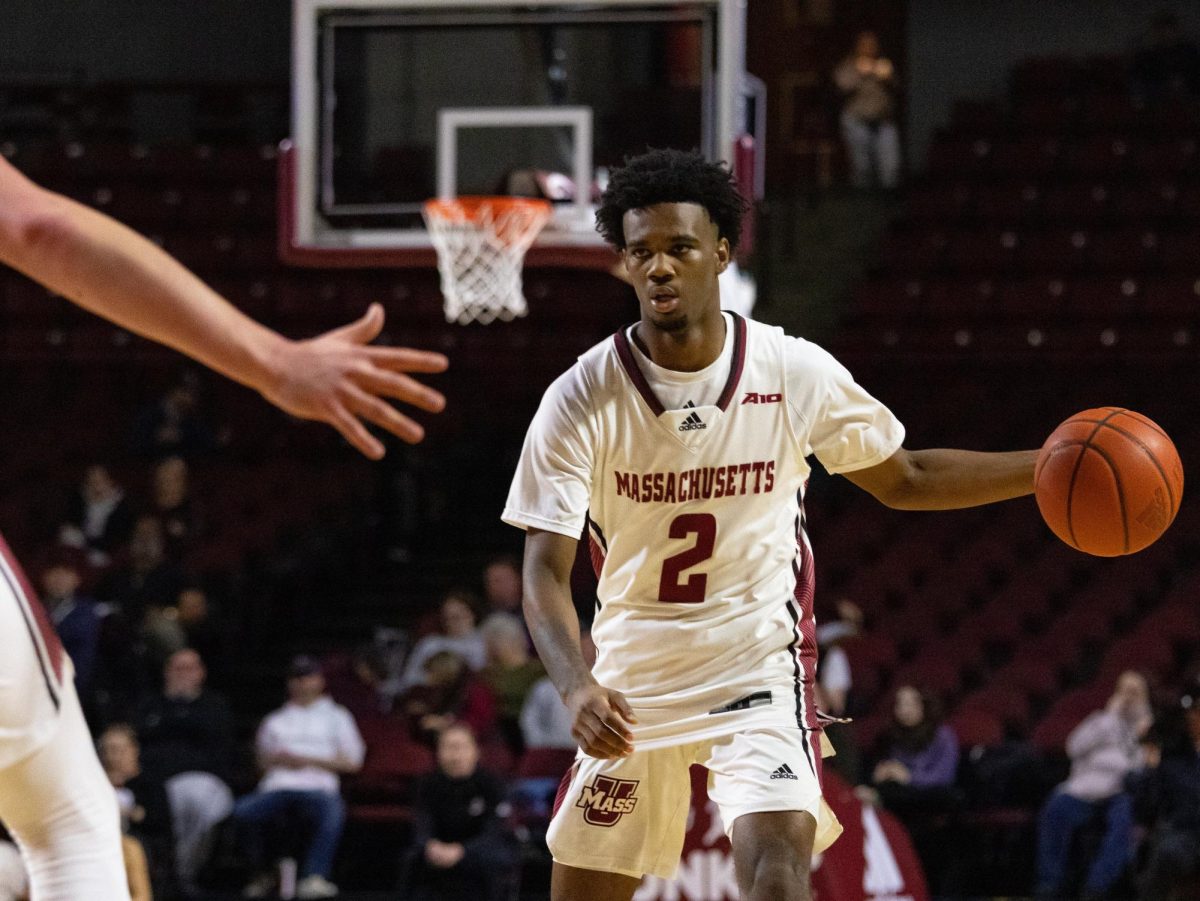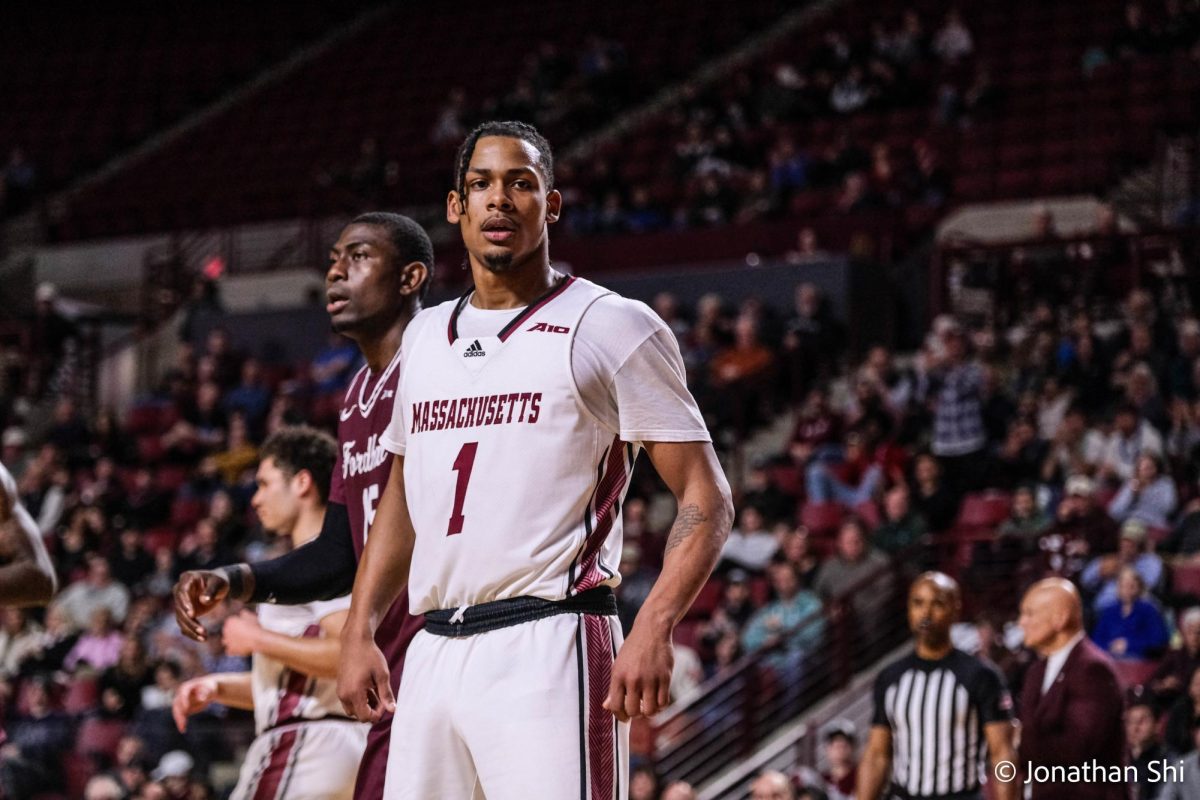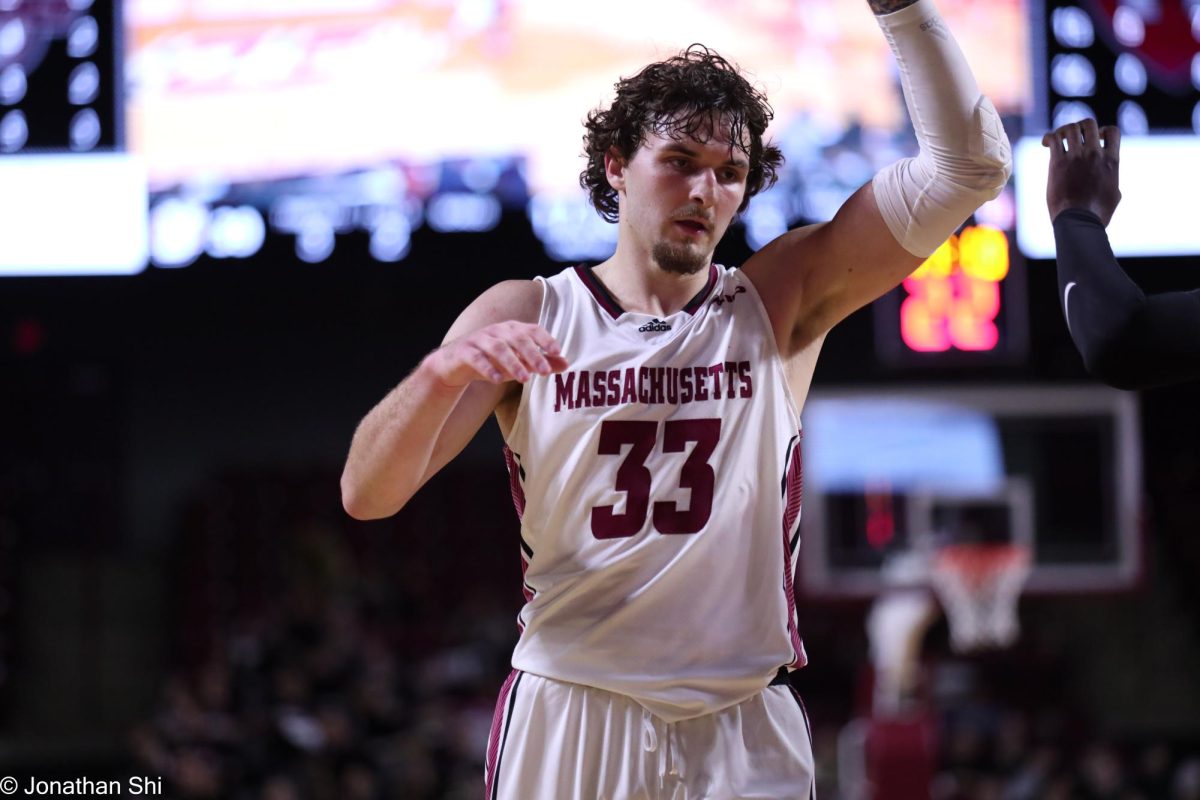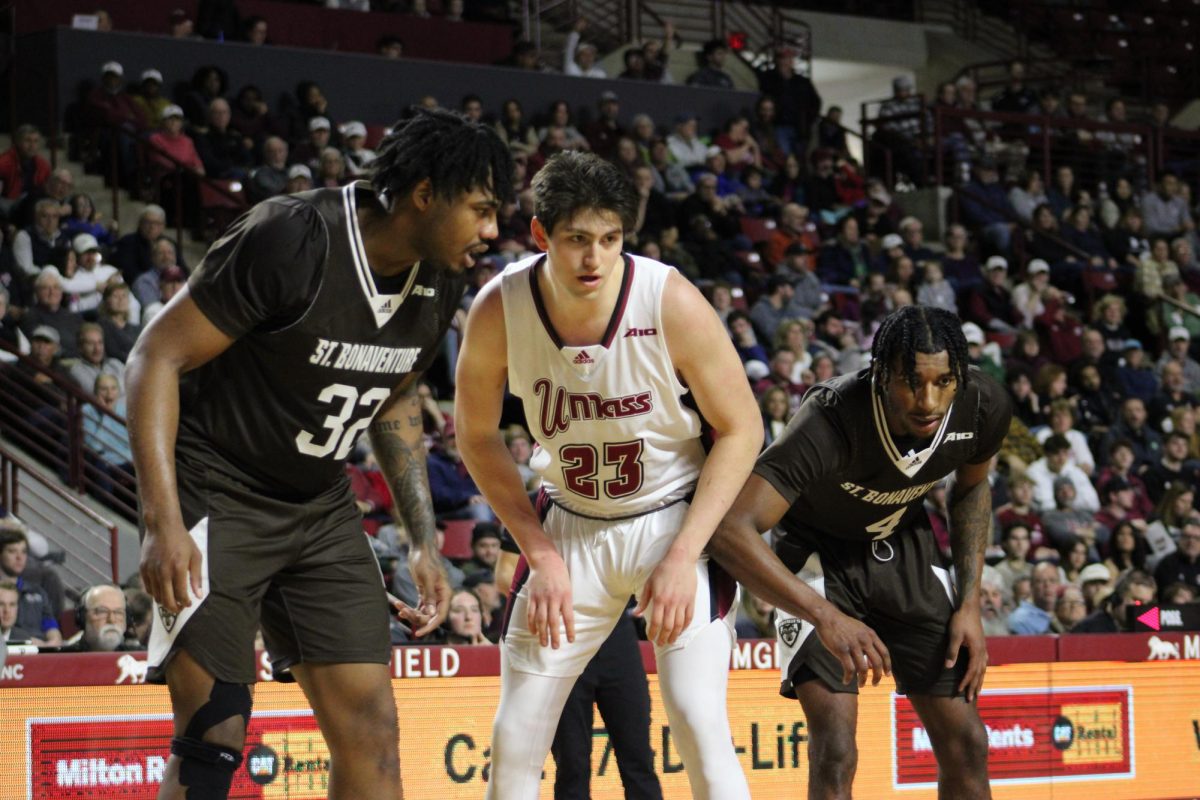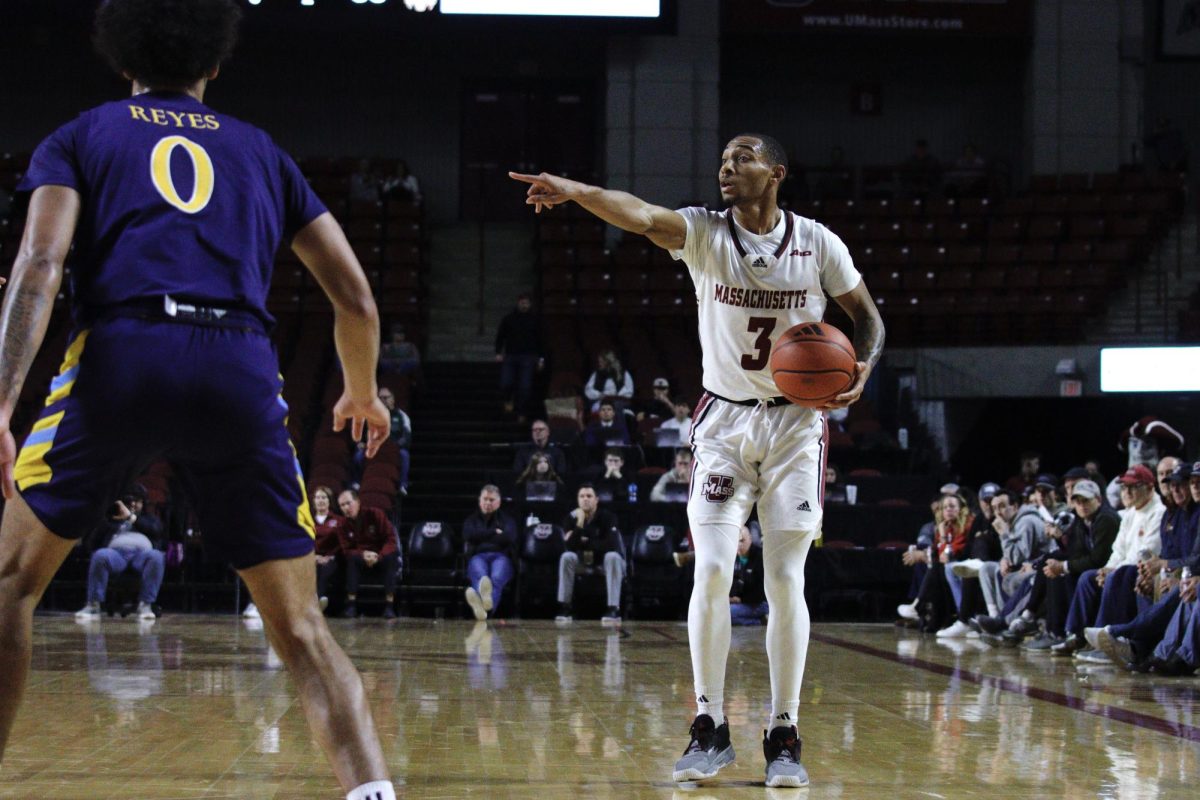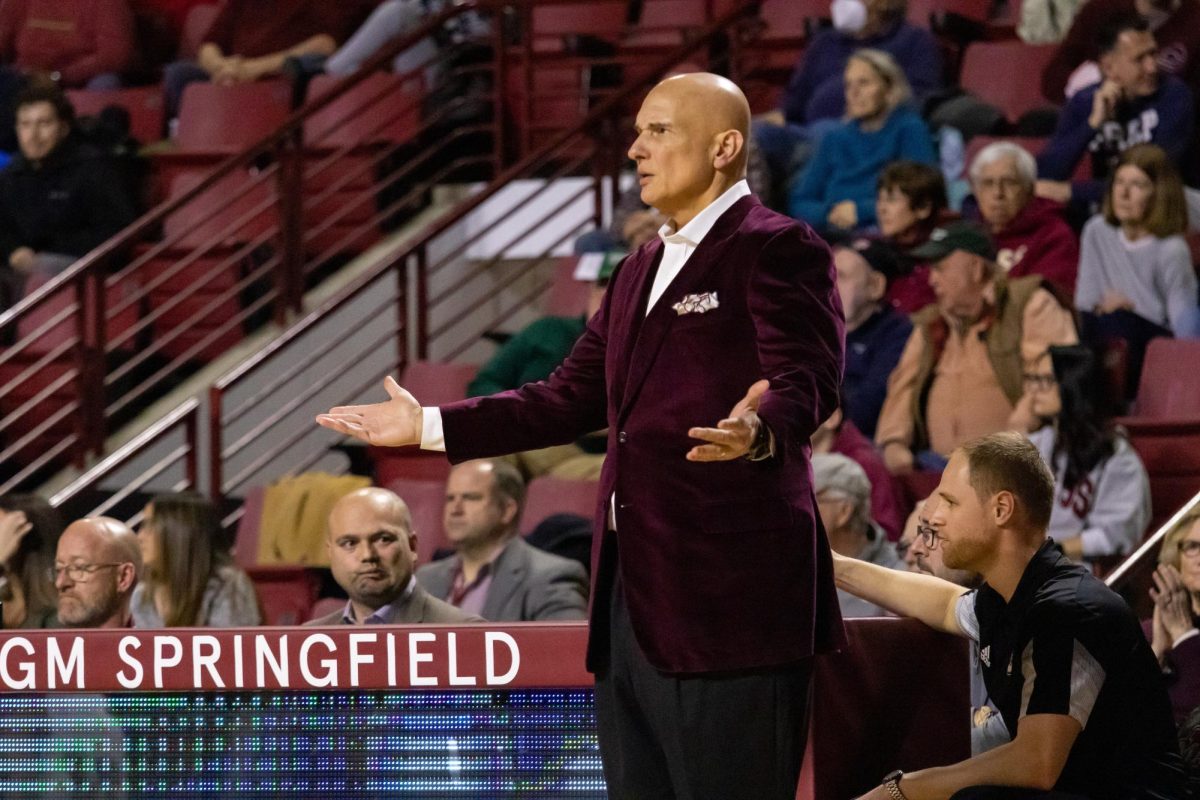
Derrick Gordon pauses, allowing the flow of yet another conversation about basketball, life and the future unknown to momentarily grind to a halt. He’s deciphering between a year’s worth of memories – a year which he describes as a personal journey and a blessing – and trying to pigeonhole a year’s worth of change into one answer. Selecting the most impactful moment from the past year is impossible, but now satisfied with his answer, Gordon attempts to explain.
“My whole life has changed,” said Gordon, his cadence quickening.
“I’ve done things that your average 23-year-old is not doing right now, to be honest. I’m doing a lot of abnormal things off the court. I’m going to a bunch of events and flying all over the country and meeting new people. I’m good friends with celebrities that I know I can go to and talk.
“It’s just like, ‘Man, if I would have known this I would’ve came out a long time ago. A very long time ago.’”
Gordon made history a year ago today, becoming the first Division I men’s basketball player to announce that is gay. Hours after making the joint announcement with ESPN and Outsports.com, he donned a fitted black t-shirt which said #BETRUE across the chest, Gordon sat in the green room of the Mullins Center and rehashed his story to hordes of journalists, just days after telling his teammates for the first time.
The pursuit of happiness is fleeting. For Gordon, that day marked the beginning of a renewed, invigorated search. It would, however, come with impediments along the way.
“He’s got a greater love for life,” said Wade Davis, the executive director of the You Can Play Project.
“When I first met him, he was fragile. He was not in a place of not loving himself, but he was really struggling with how to exist in the world, because he was this amazing athlete who understood his sexuality and was really at a point where he could no longer not be out.”
On the day he came out Gordon said he felt as if he could jump higher and he beamed for the duration of the interview session. That day, his steps were lighter and his future brighter. He said he would no longer have nights where he cried himself to sleep and his serious contemplation of quitting basketball altogether as he struggled to live in a constant state of secrecy, fearing at any moment those around him may learn his secret.
Instead, April 9, 2014, ushered in the next phase of Gordon’s life. The University of Massachusetts community embraced Gordon as he started all 32 of UMass’ games this season. Along the way, he criss-crossed the country fulfilling speaking arrangements, dated a celebrity actor and saw his Twitter account gain more than 10,000 followers. He assimilated back into a locker room that he once felt alienated in and became a source of inspiration within the LGBTQ community in the region.

Yet despite the abnormal opportunities off the court, it was his normal, if not inauspicious production on the court this past season which gnawed at Gordon’s psyche. He averaged only 28.4 minutes and 9.4 points per game in an offensive role which he neither agreed with nor flourished in.
Gordon expected more from both himself and his coaches. A self-described winner, UMass’ 17-15 record compounded his personal frustrations. He failed to see eye-to-eye with the coaching staff over his offensive role and didn’t live up to his own expectations.
“I wasn’t liking the way things were going,” he said. “Overall, I wasn’t happy.”
So, on March 24, Gordon announced his intention to transfer from UMass in search of a more prominent role at a high-major program, in search of a team that allows him to be “the guy.” Less than a year removed from making the most difficult decision of his life, Gordon again took a step toward the unknown, seeking yet another fresh start in another new environment.
From the outside it was a curious decision. A player fully embraced by the Amherst community who figures to have a prominent role next season decided to transfer? Why give that up?
Because Gordon is on a mission to prove himself as much, much more.
***
In the months leading up to last season, Gordon would watch the video over and over, smiling each time.
The clip shows former Brooklyn Nets center Jason Collins approaching the scorer’s table in his first home appearance late in the fourth quarter of a game in which the Nets handily beat the Atlanta Hawks. As the officials motion for Collins to enter, the Barclays Center public address announcer brings attention to Collins’ debut.
The camera pans and fans begin to rise. At first, only a handful catch on, but eventually entire sections followed suit. Before long, most of the arena stood as one cheering for Collins.
“The announcer said Jason Collins and just about everybody stood up in the arena and started clapping,” Gordon said. “And when I saw that, it just put a huge smile on my face. I was like ‘Wow, that could be me.’ And I watched that video over so many times, like, ‘Yeah, I want that to be me.’ When I saw that, I said ‘Ok, I know it’s time.”
Collins, who had a 13-year professional career, announced he was gay in 2013 and became the first openly gay NBA player to appear in a game when he signed with the Nets. Gordon followed Collins’ path intently as he determined how to go public with his own sexuality.
Initially, Gordon waited for a collegiate player to follow Collins’ path. When that didn’t happen, the 6-foot-3 guard from New Jersey determined he’d take the risk of being the first.
“I knew I was going to be the first one coming and a lot of people were looking up to me,” Gordon said. “So I had to make sure to keep my head on straight. I’m a good kid already, but to make sure I keep my head on straight because I’m under the microscope right now so it’s like everybody is watching my move.
“And I don’t mind it. I know I can be a good role model, which I have been. I’m always willing to help anyone out that needs help with this whole process. I still get emails from people saying ‘Oh, I appreciate what you’ve done for me and you helped me come out to my family’ and things of that nature.”
In an instant, Gordon became a national name. With that comes attention and responsibility. Yet he was also a trailblazer, the first player to ever return to Division I men’s basketball as an openly gay player. Gordon’s reception was pivotal for an entire community as well as for a player aiming to propel himself up the rungs of the basketball landscape.
Yet Gordon said that by the end of the year, only his Mohawk received any kind of negative backlash from fans. As far as his sexuality? Not a single wayward comment.
For someone like Davis, who is a former NFL player and a mentor for young athletes, who also helped Gordon throughout the coming out process, it was an encouraging sign.
“Now, situations don’t always align that beautifully in every case, but Derrick is really a template for what we hope to have happen.”
Cyd Zeigler, who owns Outsports.com and penned Gordon’s original story, said the most important aspect for Gordon was to simply play basketball and to be accepted as an athlete first. But he acknowledged that Gordon’s high profile at UMass helped elevate the story.
“There are lots of people I’ve talked to who point to Derrick as somebody who helped to deal with something going on in their life,” he said.
“It’s because of several things. He’s a basketball player in Division I. He’s black, he’s got tattoos. He fits so many different angles that people don’t necessarily connect with gay people. Still when you watch TV, the gay male characters are still white. Sometimes they’re black, but usually they’re white, they usually don’t like sports. They usually talk funny. They usually like Cher – the singer. So Derrick kind of flies in the face of all that.”
Gordon reveled in the ability to connect with others and isn’t one to shy away from attention, nor is he shy on confidence. In that sense, it made him an ideal role model for the LGBTQ community.
Yet despite the added attention and responsibility, Gordon also had to assimilate himself in area where outside attention isn’t always welcomed: the locker room.

Zeigler believes that coming out stories like Gordon’s are like a marriage.
“I think the media is interested in coming out stories,” he said. “What they’ve failed to do is tell the most important part of the story, which is life after coming out.
“It’s almost like when you get married. The wedding really isn’t that big of a deal in the big picture, it’s the marriage. Coming out is the same thing. Coming out is one day in the media and that’s it. Well, what’s the marriage going to look like? And the fact that the marriage looks pretty good between these gay athletes and these teammates should be talked about more within the media.”
For Gordon, facing the most important part of the story meant facing a locker room filled with teammates, which, at one point, refused to even shower with him, even after he came out. It would take time, but his success hinged on his assimilation back into the locker room.
And while Gordon was adamant his relationship with his teammates was great, he acknowledged it wasn’t always easy. Initially, he questioned how the situation would unfold.
He’d often walk into an empty shower only to see groups of teammates enter once he finished. Yet time eased the awkwardness. Like turning a stream of water, he said once one teammate mustered the courage to join him it turned into three, which turned into five. Before long, they were having conversations. It was normal.
Davis has been in Gordon’s position, too. A college and professional football player, Davis understands the nature of the locker room – something that outsiders don’t necessarily connect with.
From the outside, it’s an area where guys are naked together so, as Davis explains, the assumption is this is where relationships will go awry. Gordon proved this wasn’t the case.
“It just roots back to historical narrative that gay is this type of predatorial type of thing, where now you have gay people who can’t control their sexual impulses,” Davis said.
The locker room conversation generally implies there is a specific “locker room code,” which marks its territory as a safe haven for players. Think of it as a one-way area of communication where everything goes in, but little, if anything, comes out.
It’s one of the few spaces where athletes are still vulnerable.
“People don’t really understand it unless they’re in the situation,” Gordon said. “People are going to be uncomfortable. And it wasn’t like that here. Don’t get me wrong, was I thinking about it from time to time? Like, maybe something could happen when I’m in the locker room? Yeah I thought about it. But the more it went on, I was like I don’t have to worry about that.”
Part of ensuring a successful “marriage” was educating the rest of the team. Gordon said once the Minutemen saw who he was dating – he said three of his previous relationships were with white males in their 40s – they became more comfortable with Gordon.
“I think it’s good to see we haven’t changed as a team,” said UMass center Tyler Bergantino, who was Gordon’s roommate in 2012. “This is one of the closest teams I’ve ever been a part of. It shows DG is comfortable around us since we’re all that close. It’s to the point where it’s not even in our heads anymore.”
Gordon said they loosened up to the point where they’d crack jokes at his expense, to which he’d laugh along. If he was to get defensive about his sexuality, it wasn’t typically with his teammates.
But Gordon’s improving relationships with his teammates couldn’t make up for the growing feeling that he wasn’t valued like he should be.

Gordon’s voice is again rising as he recalls this past summer.
He predicated his workout regiment on improving his 3-point shooting, something he spoke at length about before the season began. Gordon believed the long hours would pay off and the slashing guard would have a capable shot to add to his offensive repertoire. He assumed the coaches believed it too.
By the end of the season, that wasn’t the case.
Gordon attempted only 15 3-pointers this season, making one. He said he and UMass coach Derek Kellogg were on two different pages regarding his freedom to shoot and once he realized that wasn’t his role, his confidence was “ruined.”
That’s something rarely ever uttered from the uber-confident Gordon.
“It just wasn’t my role to shoot the ball,” he said. “So it was basically like I was putting in work for nothing.”
Of course, it’s easy to see it wasn’t Gordon’s role. He transferred to UMass after his freshman season at Western Kentucky, where he averaged 11. 8 points per game but shot just 26.6 percent on 3s. He yearned for the chance to prove himself as an all-around player yet never produced the results.
UMass will point to Gordon’s track record, Gordon will point to what he hasn’t shown yet. It created a divide and both sides agreed they weren’t looking for the same thing.
“We had a great conversation,” UMass coach Derek Kellogg said. “He’d like a little bit of a change of scenery. He’d like to be more involved as a feature player on the basketball front and he thought a change of scenery would be good – and I agree.”
Gordon isn’t the type to shy away from the spotlight, nor does he play his emotions close to his vest. He’s keenly focused on how outsiders view his game. In the preseason, he spoke of proving coaches within the Atlantic 10 Conference wrong – practically daring them to give him space to shoot the ball.
They did, and more often than not, it worked for them.
So it was that same coaching audience which Gordon now fretted would view him as some kind of damaged goods now that he was, as he put it, a free agent after transferring.
“If people really know who I am and know the player that I am, they know I can do a lot more than what I did this year on the court,” Gordon said.
He implored coaches to flip through tape of his entire game, even dating back to his Western Kentucky. The shooting woes? Well, those aren’t as bad as they seem either, he says. “I’m not saying I was Ray Allen at Western Kentucky, but I made a lot of 3s and misses a lot of 3s.” In the same breath, he recalls his ability to lead Western Kentucky to the NCAA tournament despite tempered expectations surrounding the team.
It was vintage Gordon. Brash, with confidence bordering on arrogance, while also instinctively selling himself as a player. He has to, for he has only one more shot to prove himself to those who judge him.
One more shot to prove his basketball worth.
It’s natural to assess a situation and draw on past experiences to come to a conclusion. Coaches must do it when evaluating players, often using prior history to determine what players fit which systems. Judges do it nearly every day, citing precedent upon making rulings.
For Gordon, there is no precedent. There’s no path in the ground to follow, nor does he have much of an idea where he will end up.
Today, Gordon will fly to Miami, where he is scheduled to be an ambassador at the Miami Pride parade this weekend. He’s only a week removed from a trip to the Final Four in Indianapolis where he spoke at a news conference organized by legal activists to object to an Indiana state law which members of the LGBTQ community found discriminatory. In May, he’s scheduled to attend an event in Boston with Jason Collins, where Gordon will speak.
Gordon is somewhere between a regional celebrity and a star, something he doesn’t mind. Rarely do players with his type of recognition become available on the transfer market. Never, has an openly gay Division I men’s basketball player transferred to another institution.
He can’t control how schools view him in terms of his sexuality, something he’s come to terms with. If they don’t like it, fine, he says. He won’t hold grudges.
But Gordon can at least attempt to control how potential suitors view him as a basketball player, and he was daringly honest with how he views himself and where he expects to end up. He said his plan is to play at a high-major or another school within the Atlantic 10 Conference. Of course, if he’s given the option.
He wants them to know exactly what he believes they’re getting, too, regardless of his sexuality.
“At the end of the day, I know I’m gay but I’m a hell of a basketball player,” Gordon said.
“I’m a player that wins games and puts time and effort in the gym. I want to get better and I can do it all – shoot the ball, score, pass, rebound, defend, everything. Honestly, I think more coaches should be worried about that aspect of what I can bring to the table.”
It’s been a winding year for Gordon. He’s lost childhood friends and gained “many” others. He was embraced by the Amherst community and according to Gordon, he couldn’t have come out at any other school. He’s traveled the country. In a year, Gordon became celebrity.
Gordon also made significant strides for gay athletes everywhere. When asked, Gordon said he knew of a number of “high-major” starters at other schools who were also gay and awaiting the right time to come out. He wasn’t jeered once, nor did he have issues within the infrastructure of his own team. That’s an important step.
Yet on the court, Gordon’s role and subsequent desire to continue to play for UMass eroded. For Gordon, his entire life is riding on his success next season. It wouldn’t happen at UMass.
“Honestly, “I’m just trying to change the world,” he said.
“I changed the world by coming out and now I’m trying to change the world again as far as being the first openly gay basketball player drafted. So I think people will definitely still follow me.”
And so he goes, hoping there’s another team to give him a chance, to become a featured player on offense, to allow him to be a program-changing player. As of now, he doesn’t know where he’ll end up. He doesn’t know whether coaches will give him that chance and share the belief he is the player he pleads that he is. All he knows is that he believes in himself.
Mark Chiarelli can be reached at [email protected] and followed on Twitter @Mark_Chiarelli.







